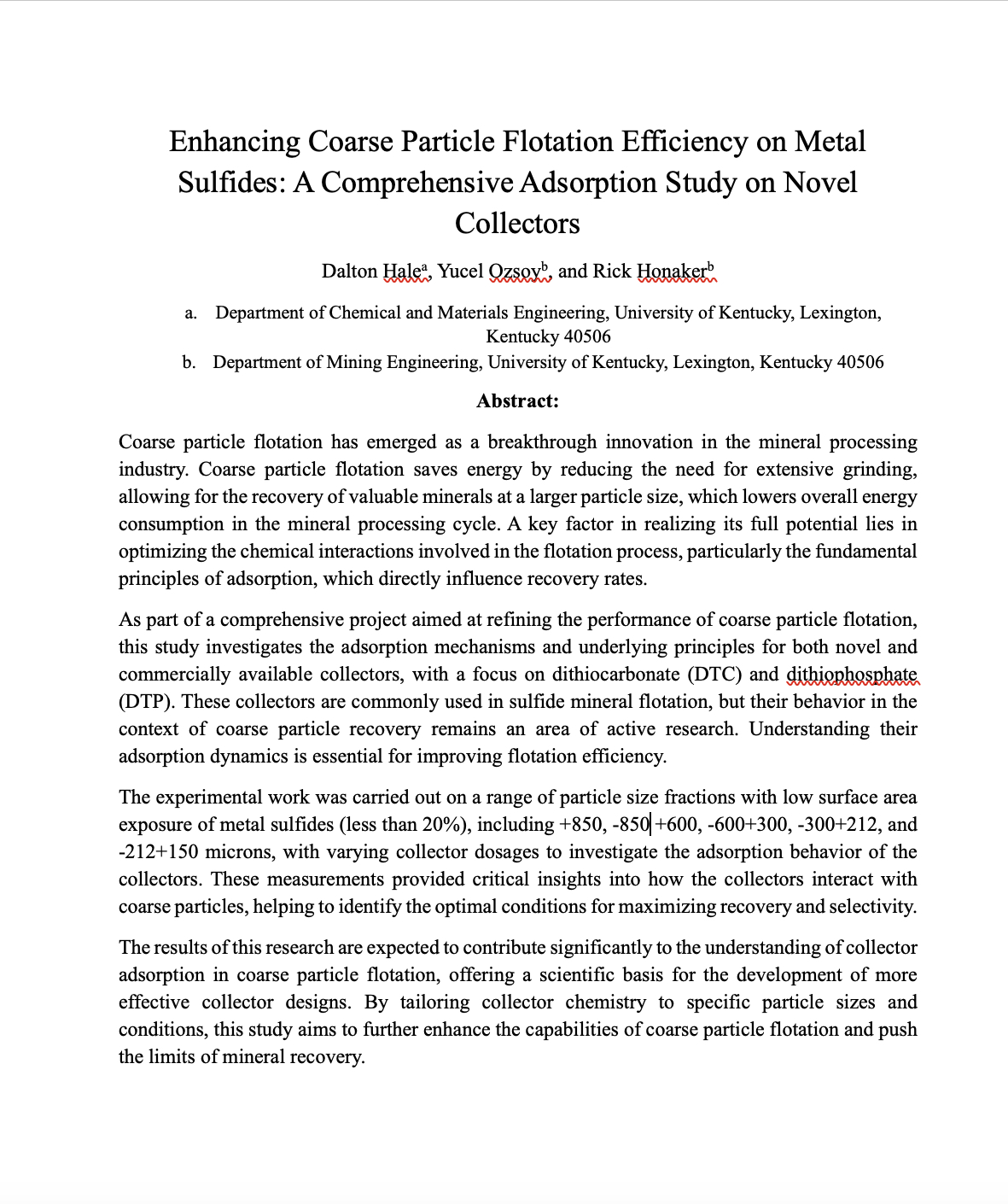2024 AIChE Annual Meeting
Enhancing Coarse Particle Flotation Efficiency on Metal Sulfides: A Comprehensive Adsorption Study on Novel Collectors
Dalton Halea, Yucel Ozsoyb, and Rick Honakerb
- Department of Chemical and Materials Engineering, University of Kentucky, Lexington, Kentucky 40506
- Department of Mining Engineering, University of Kentucky, Lexington, Kentucky 40506
Abstract:
Coarse particle flotation has emerged as a breakthrough innovation in the mineral processing industry. Coarse particle flotation saves energy by reducing the need for extensive grinding, allowing for the recovery of valuable minerals at a larger particle size, which lowers overall energy consumption in the mineral processing cycle. A key factor in realizing its full potential lies in optimizing the chemical interactions involved in the flotation process, particularly the fundamental principles of adsorption, which directly influence recovery rates.
As part of a comprehensive project aimed at refining the performance of coarse particle flotation, this study investigates the adsorption mechanisms and underlying principles for both novel and commercially available collectors, with a focus on dithiocarbonate (DTC) and dithiophosphate (DTP). These collectors are commonly used in sulfide mineral flotation, but their behavior in the context of coarse particle recovery remains an area of active research. Understanding their adsorption dynamics is essential for improving flotation efficiency.
The experimental work was carried out on a range of particle size fractions with low surface area exposure of metal sulfides (less than 20%), including +850, -850+600, -600+300, -300+212, and -212+150 microns, with varying collector dosages to investigate the adsorption behavior of the collectors. These measurements provided critical insights into how the collectors interact with coarse particles, helping to identify the optimal conditions for maximizing recovery and selectivity.
The results of this research are expected to contribute significantly to the understanding of collector adsorption in coarse particle flotation, offering a scientific basis for the development of more effective collector designs. By tailoring collector chemistry to specific particle sizes and conditions, this study aims to further enhance the capabilities of coarse particle flotation and push the limits of mineral recovery.
